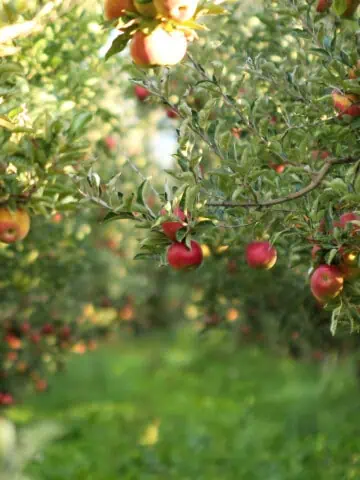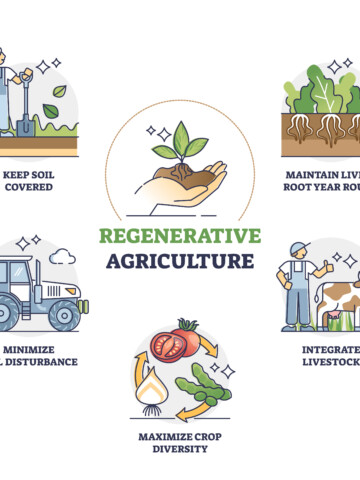
Life has an infinite amount of choices. Most days they seem quite simple. Should I splurge on a new pair of sneakers or save the money for a vacation? Should I go to the gym after work or meet a friend for dinner? Can I eat a beef burger with fries for lunch instead of a healthy organic veggie wrap? But, did you ever stop to think about the ripple effect of your decisions? When we are far removed from those results, we aren't aware of the implications they may have on our bodies, other people and on our environment. Eating seasonal fruits and vegetables is a simple change we can all make with our daily diet that is sustainably good for our planet. Use seasonal produce guide or seasonal recipe index for guidance on optimal times to purchase fruits and vegetables.
What is Seasonal Produce?
Seasonal fruits and vegetables are purchased and consumed at the time of harvest. That's easy to accomplish in the summer months when local produce is abundant. But, what happens in the winter months when the weather doesn't allow for growing produce outdoors? Many of the fruits and vegetables we enjoy, will ship from other parts of the world where it can grow in that season. That is considered global seasonal produce. It is harvested within the same season but shipped from a different part of the world.
Globalization makes it easy to send goods around the world. However, the choice of
the means of transportation does influence the amount of CO2
emitted for the transportation of goods. Out of season fruit has either been imported from another country or grown in heated greenhouses. Either way, excess carbon emissions are created.
Since most of the time we have options, it's best to buy produce that is seasonal and harvested closer to your home. Even if that means, you can't eat a fresh strawberry in the winter that has been transported from another country. It will be that much more exciting to bite into a fresh strawberry in the summer months! Within each season, there are always choices in produce that you can get within your local community, state or country.
Benefits of Eating Seasonal
Eating seasonal is beneficial in many ways:
- In season produce is fresher, more nutritious, and it even tastes better when left to ripen and be picked at peak time.
- Local, seasonal produce will help reduce your carbon footprint and support a more geographically sustainable food economy.
- Reduction in pesticide consumption - transporting out-of-season produce around the world requires pesticides to keep fruits and veggies fresh.
- Save money on local, seasonal produce which usually costs less with increased supply, higher demand and minimal shipping costs.
- Support for your local community, farmers and restaurants.
Although eating more seasonal and local fruit and vegetables will lead to some environmental benefits, it is just one part of a sustainable diet. Other strategies such as reducing consumption of animal-based products and reducing food waste are also essential parts of a healthy, sustainable diet.
Use The Mindful Fork Seasonal Produce Guide as a reminder of what produce to cook with throughout the seasons. Choose recipes that use those ingredients. When dining out, pick the chef's seasonal creations on the menu. They will most often support the local farmers.





Comments
No Comments